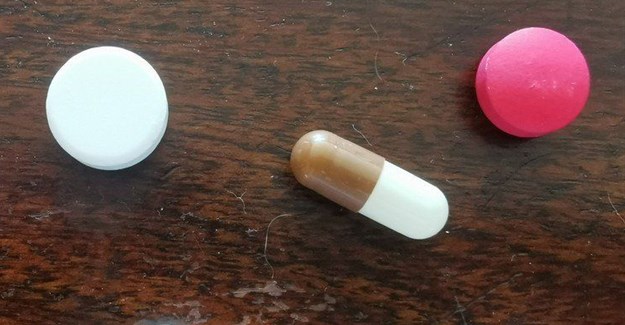There is a clamour by some people for ivermectin to be approved by the South African Health Products Regulatory Authority (Sahpra) to treat Covid-19. An article published in the South African Medical Journal (SAMJ) titled Ivermectin for Covid-19: Promising but not yet conclusive, written by six Tygerberg Hospital and Stellenbosch University clinicians and scientists, explains the current status of the drug.
 Medicines are only approved for use by the South African Health Products Regulatory Authority when there is sufficient evidence that their benefits outweigh their risks. Medicines are only approved for use by the South African Health Products Regulatory Authority when there is sufficient evidence that their benefits outweigh their risks. |
Ivermectin is an anti-parasitic drug, which has been used against a range of parasitic conditions, in humans and animals. In South Africa, Sahpra has granted access to unregistered ivermectin in cases of resistant scabies, but the drug is not approved for human use in this country. Sahpra, according to the SAM) article, has said that the drug may not be used except in “well-designed, ethically approved scientific studies”.Sahpra has indicated it will consider individual applications for pre-approval use of the drug.
Several observational studies and clinical trials have been conducted with ivermectin, with larger clinical trials set to take place this year.
A study conducted last year found that ivermectin reduced the replication of SARS-Cov-2 by about 5,000 fold in a single treatment dose over the course of 48 hours, but this was in a laboratory setting (in vitro, as these studies are called), not inside an actual human body.
In a review published in June 2020 by Nature, ivermectin was found to have antiviral activity against a range of viruses including avian influenza A, porcine reproductive and respiratory syndrome, HIV, and SARS-Cov-2.
The review included 50 in vitro and within the body (in vivo) studies but highlighted that clinical trials were necessary to properly assess the definitive effects of ivermectin against Covid-19.
There have been several small studies of ivermectin in humans. A study last year in India investigated the prophylactic potential of ivermectin against Covid-19 infection in healthcare workers. Those on a two-dose regimen had a 73% reduction in Covid-19 infection. But the study is small and it is not clear whether it has yet been published in a reputable peer-reviewed journal.
Despite these promising results, this is not enough to approve a medicine. In any case, results have not been consistent. While a study of 45 people in Argentina had somewhat positive results, another in Bangladesh of 62 people did not.

AdvertisementThese studies have been far too small for regulatory authorities to have confidence that the drug is effective against Covid-19, and that its risks outweigh its benefits.
Other trials have combined ivermectin with other drugs making it hard to identify the safety and efficacy of ivermectin itself.
The South African Department of Health issued a summary of evidence on ivermectin in December, stating: “The overall quality of the randomised trials involving ivermectin in Covid-19 patients is extremely low”. It also says: “From the available randomised control trial evidence, ivermectin is not superior to placebo in terms of viral load reduction or clinical progression. There is no evidence from randomised control trials for any reduction in mortality.” (We highly recommend reading this report. It’s well written.)
How clinical trials work
Clinical trials are the gold standard for measuring the safety and efficacy of a medicine.
Clinical trials are an arduous undertaking. There are typically three phases before a medicine is approved by a reputable regulatory authority such as the FDA in the United States, the European Medicines Agency or Sahpra
The first phase evaluates the side effects and correct dosage of the treatment on a very small group of people. The second phase recruits even more people with the emphasis being on effectiveness.
A phase III trial is usually much larger, involving several hundred or even thousands of participants. Typically half will randomly be selected to take the drug and the remainder will take a placebo (an inert substance). Ideally neither the participants nor their health carers know who has taken the drug or placebo. The trial is often also conducted in several different populations.
A large phase III clinical trial for ivermectin has not yet been reported. If one looks through the trials that have been conducted they typically have a few dozen participants, which is not large enough to make definitive conclusions.
Why caution is needed
Many other drugs have been down this road before and failed at the final hurdle. For example, in 2016, Lartruvo was initially approved for use in patients with advanced soft tissue sarcoma under an accelerated approval programme. However, it failed to improve the survival of patients in a phase III clinical trial. It was the first new drug in over 40 years to have been approved for treatment of soft tissue sarcoma and yet it failed to make the final cut.
Many of the standards used to test medicines today arose after the disastrous thalidomide scandal of the 1950s and 60s. Thousands of babies were born with deformities after pregnant women took the drug.
While we urgently need more and better treatments for Covid-19, it’s important to allow potential treatments such as ivermectin to be tested in robust studies to ensure patient safety.
BizCommunity

















